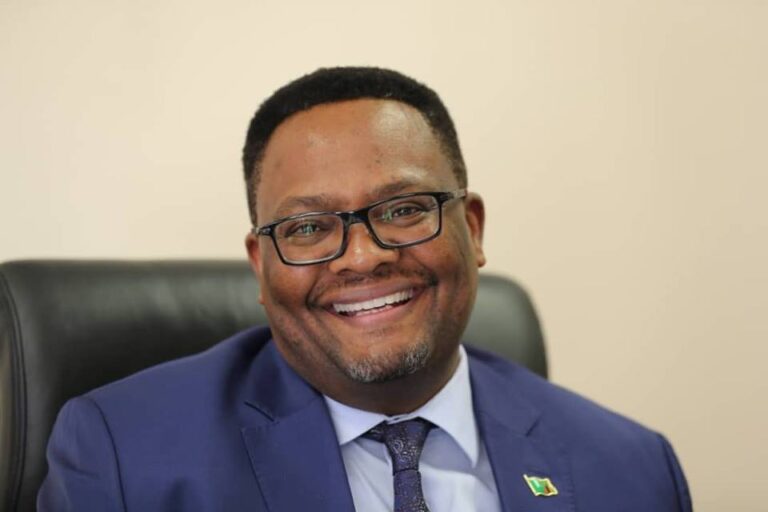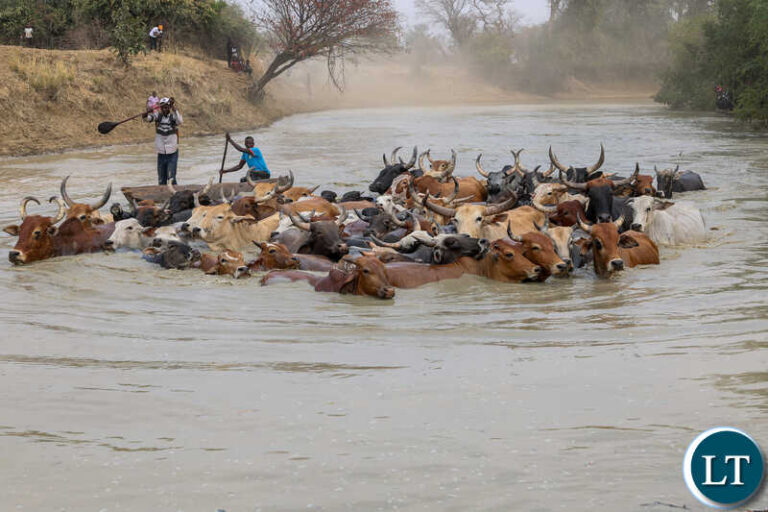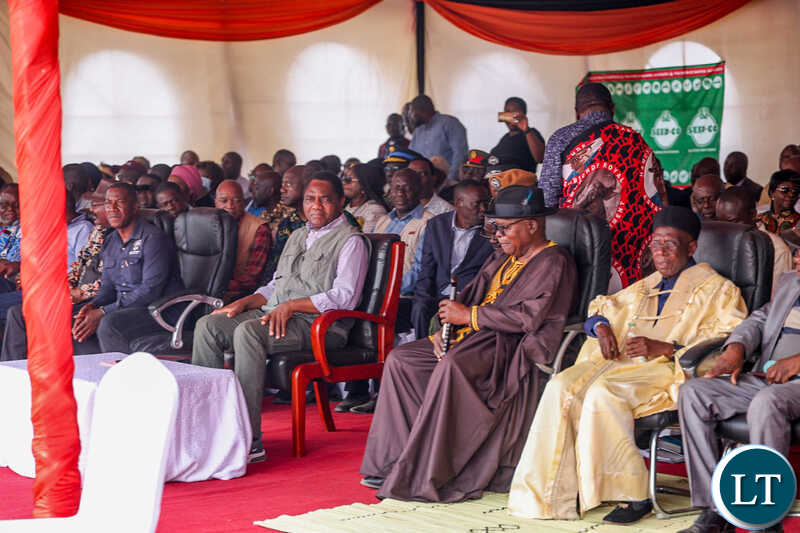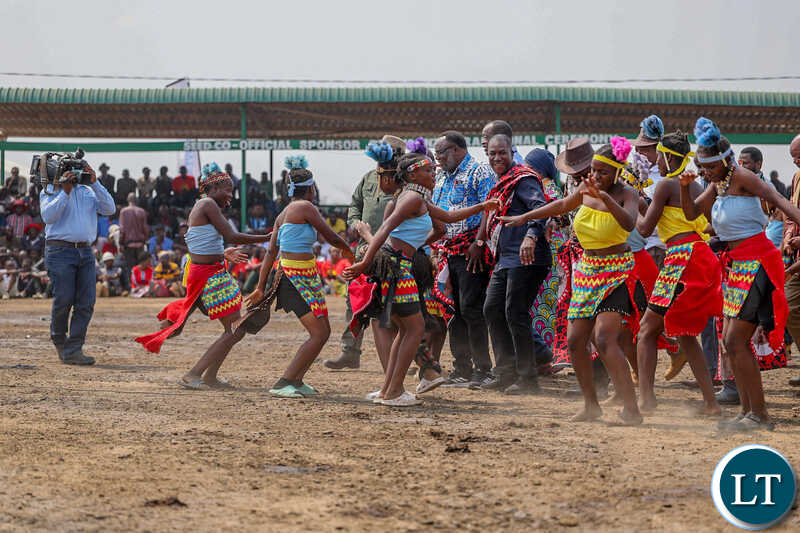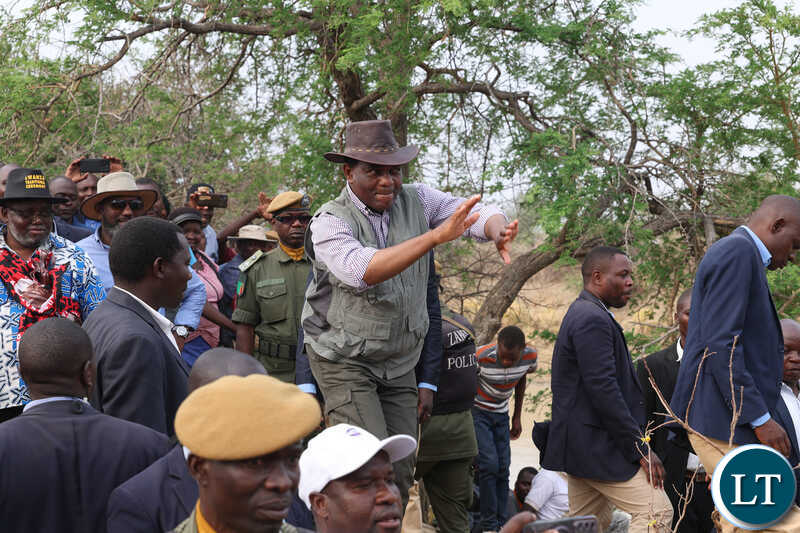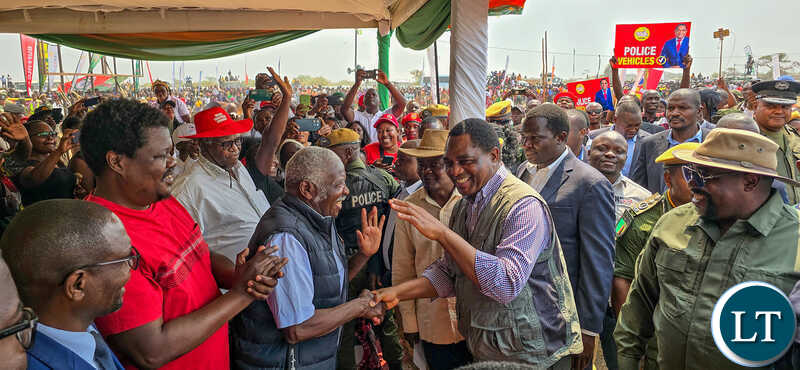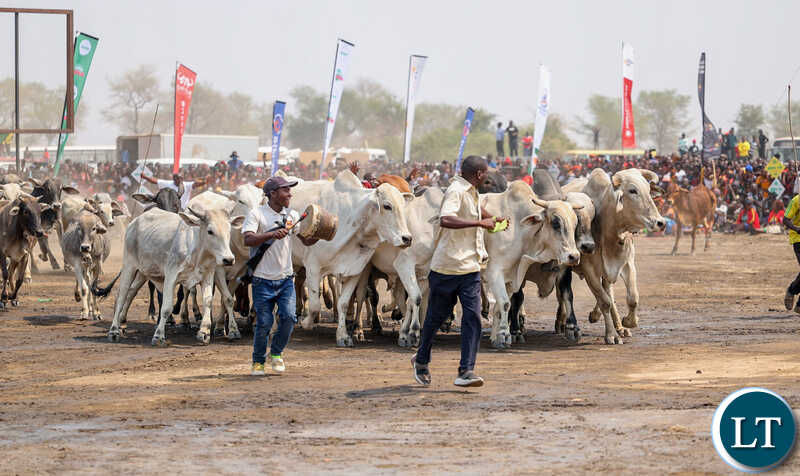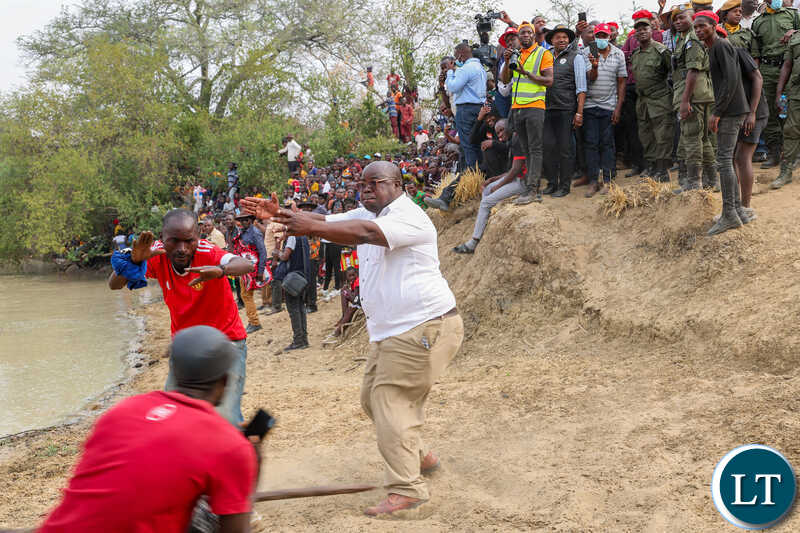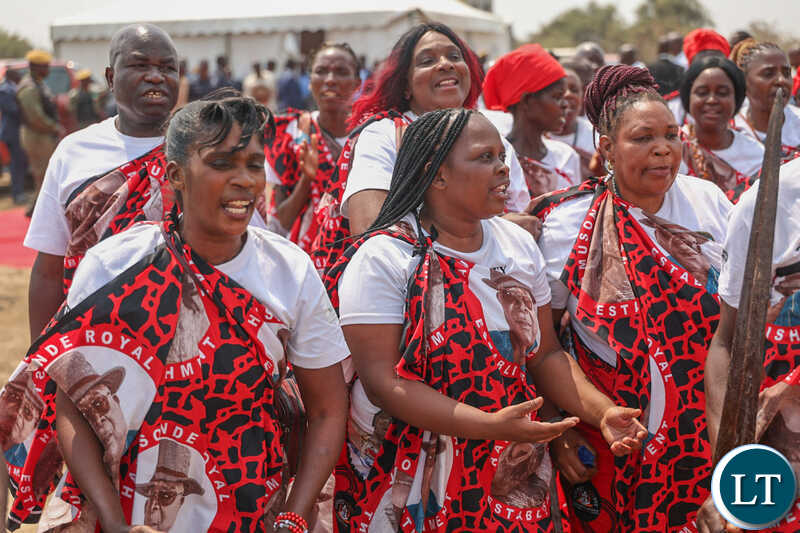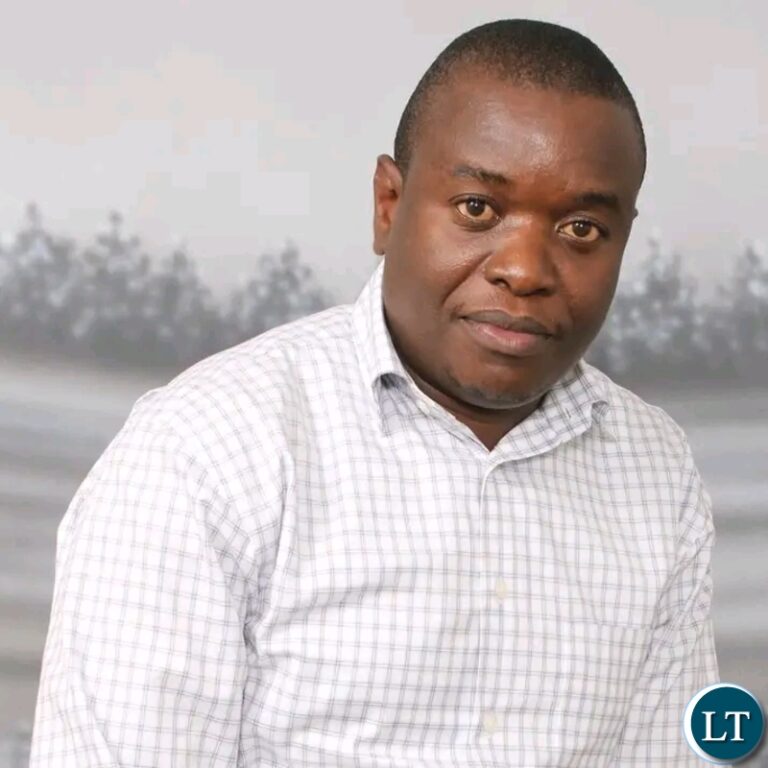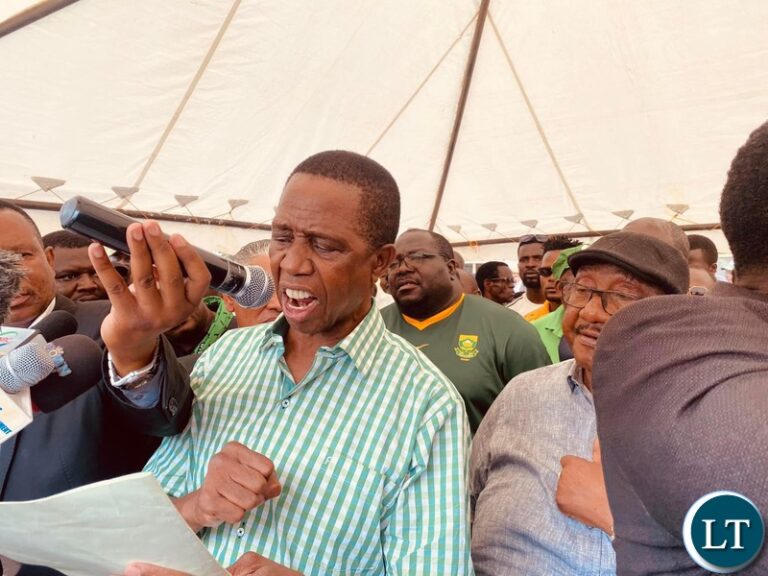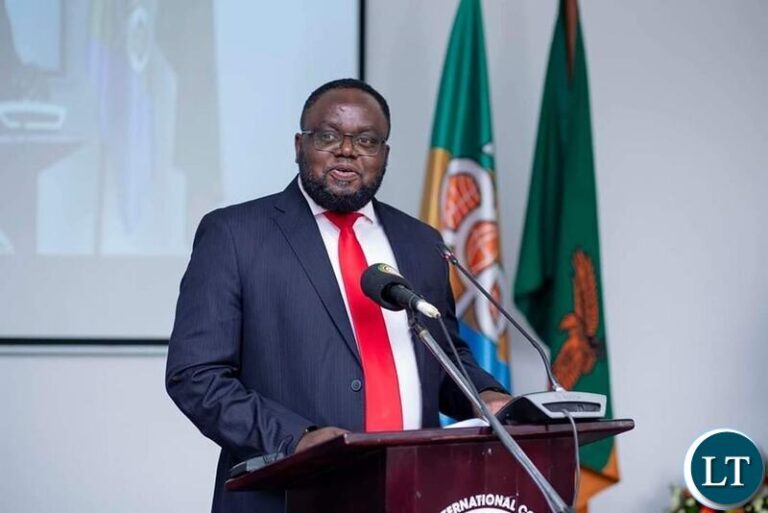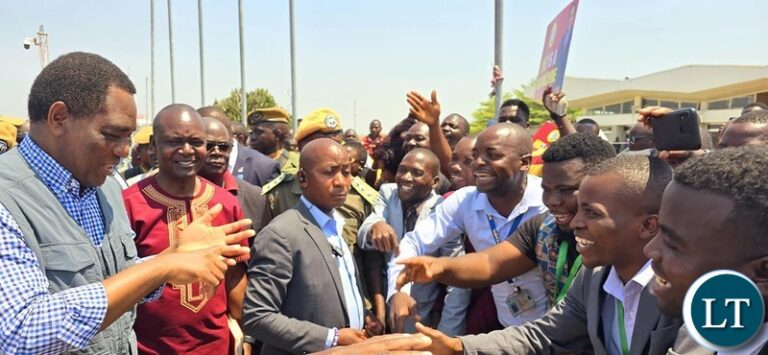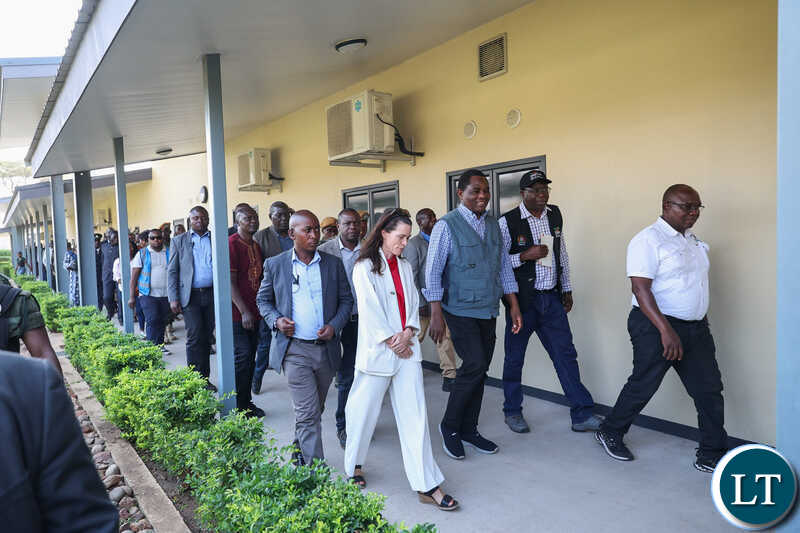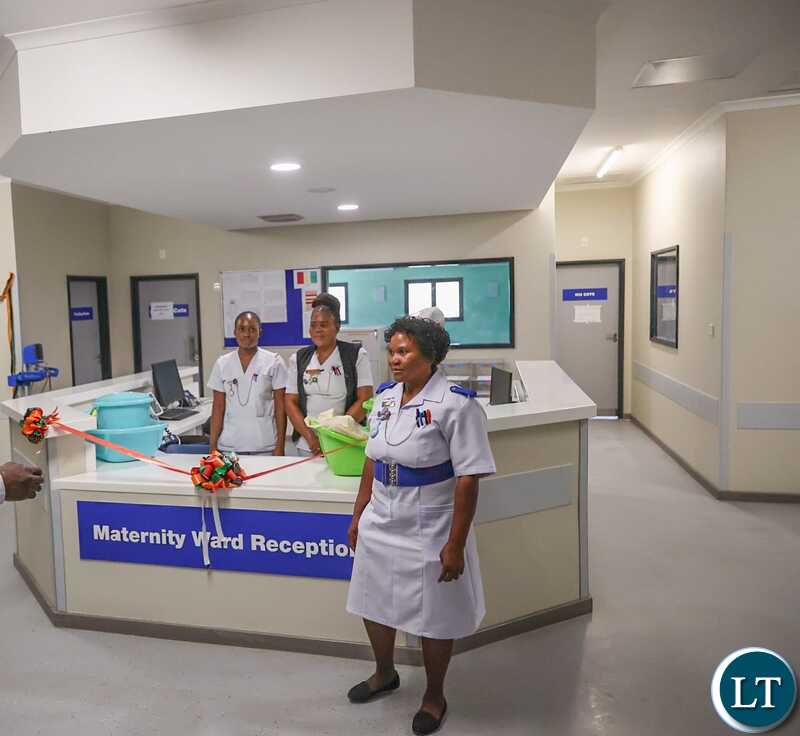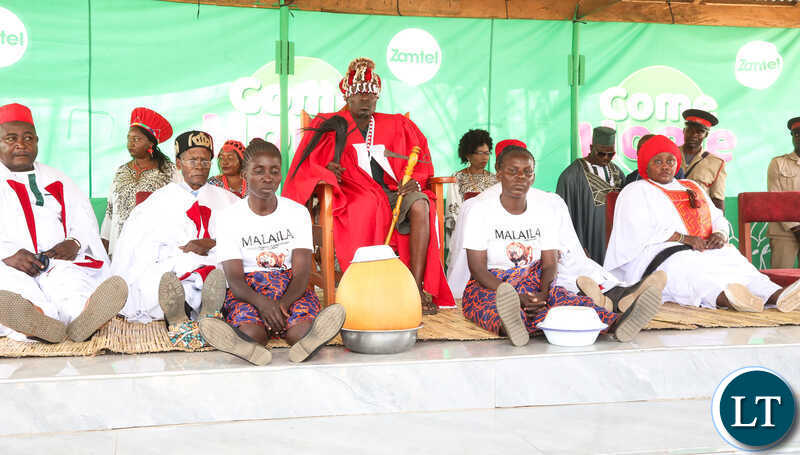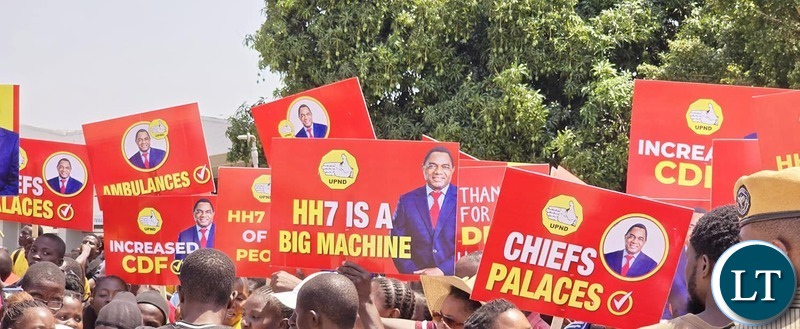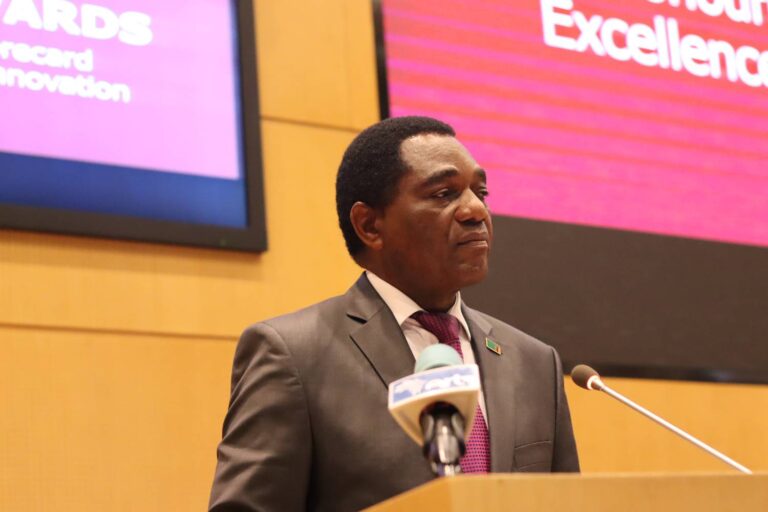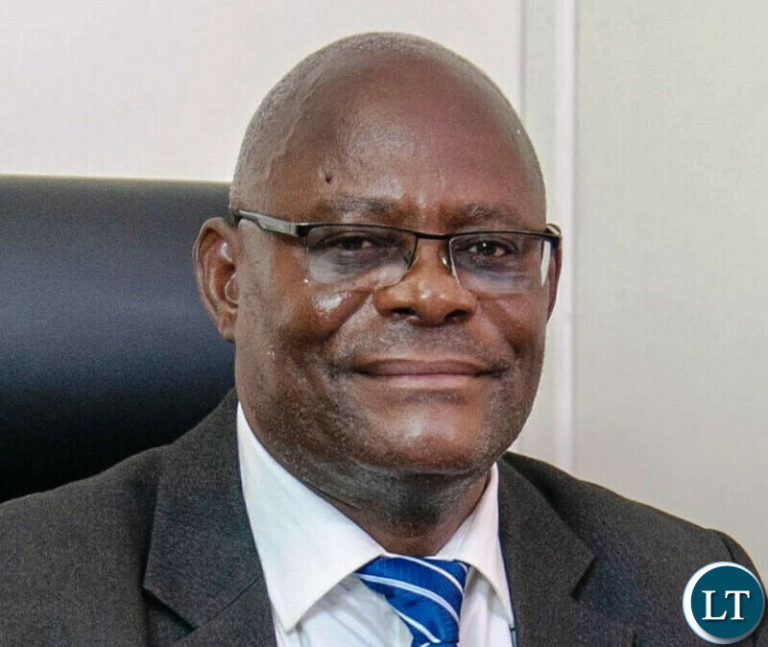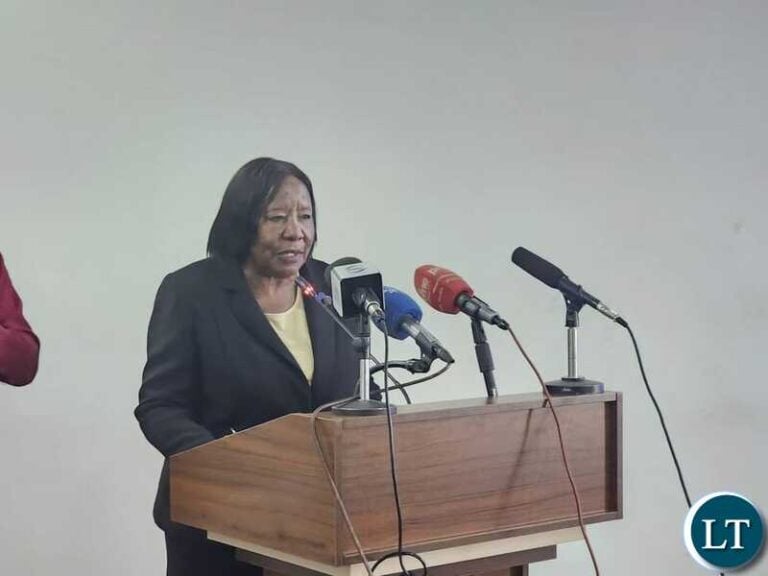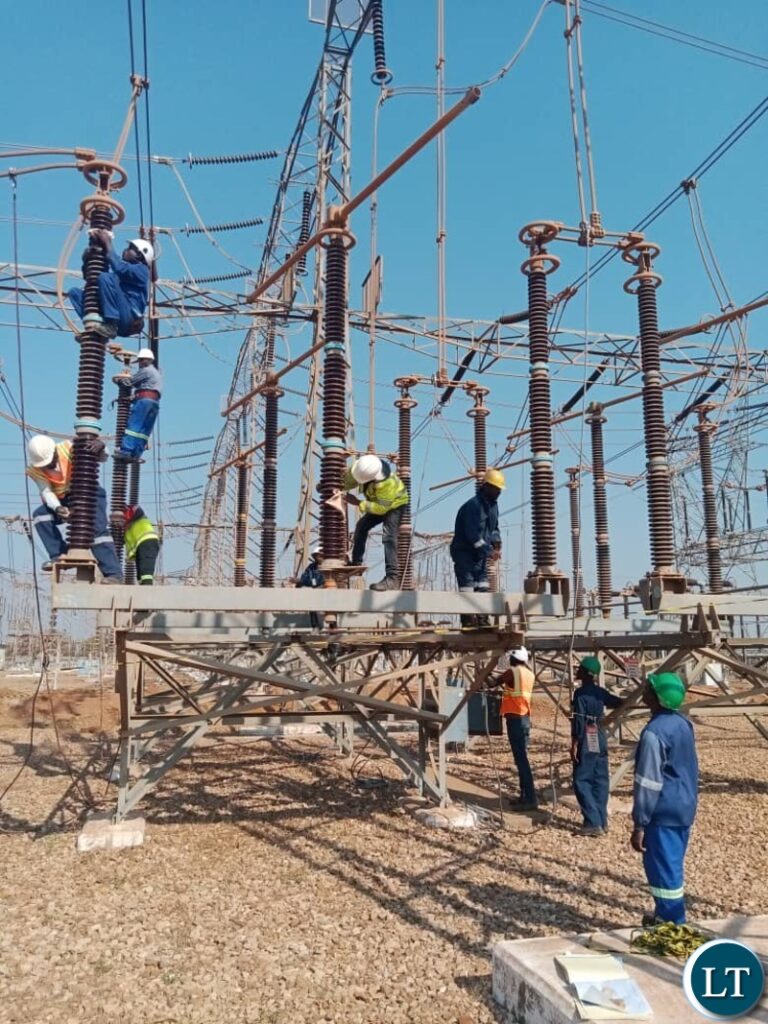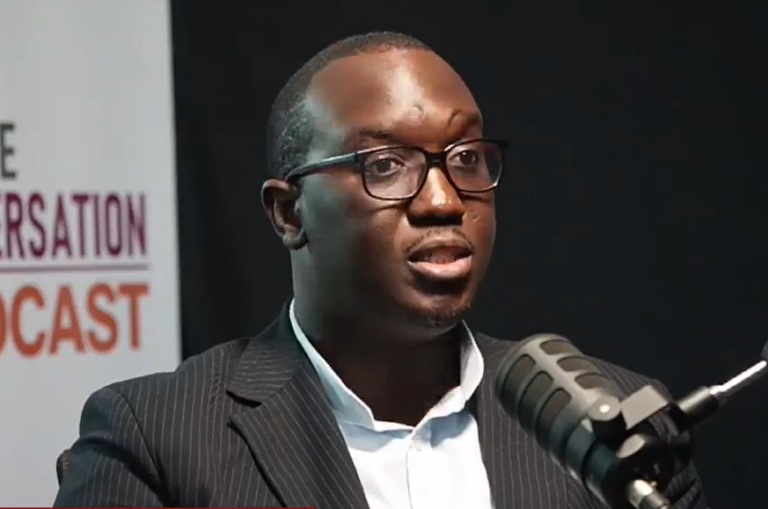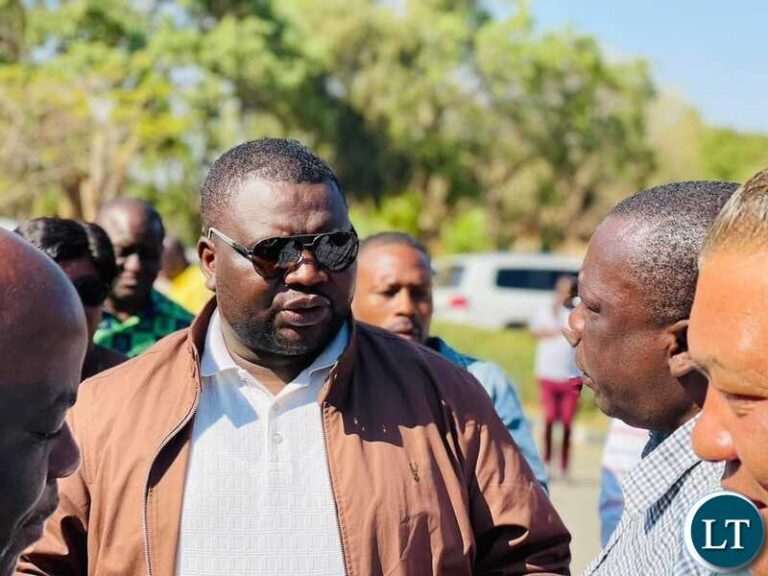On 13 September, Zambia’s President Hakainde Hichilema addressed parliament in fulfilment of the Constitution that requires the president to address the National Assembly every year and provide a report on the progress made in the application of the national values and principles. During his address, Hichilema made a series of revealing and largely off-the-cuff remarks on constitutional reform that are worth quoting at length.
He said: “The country has failed to reach consensus on this very important national document over many years. As a country, therefore, we still need to reform our constitutional order to ensure that it is truly reflecting the aspirations of our citizens. Given the substantial work that has already been done in the past, this government is committed to facilitate a least cost, efficient, and credible process [of constitutional reform] to address lacunae, omissions, or oversights in our Republican Constitution. So, we are looking at this House to be supportive of a process that would be least cost, that will be time conscious, that would not lead to allowances and more allowances and sittings and [more] sittings. And this House is the one that should help us. After all, some of your constituencies are too big. After all, I don’t understand the wisdom of how members of parliament were taken out of the council chambers. After all, some lacunae can lead us to a situation where we could have no general election for eight years. That is not a joke. Yes, we could have no elections for eight or nine years. Those lacunae sit in the Constitution. So, those who designed or signed off that Constitution, I am not sure what they were intending to do.”
Many organisations and individuals have since condemned Hichilema’s remarks. Former president Edgar Lungu described the comments as “reckless” and urged Zambians to “wake up and stop this apparent dictator from tampering with our Constitution to extend his stay in power even when he has lamentably failed to improve the lives of the people.”
Several opposition parties accused Hichilema of not understanding the Constitution and attempting to distract attention from the real issues that affect Zambians such as mass hunger, the cost-of-living crisis and the 21 consecutive hours of load-shedding a day.
This condemnation is necessary, but not sufficient. Zambians also need to understand why Hichilema is making such comments. The president’s implied threats to extend his stay in power were neither random nor a result of ignorance of the law. Hichilema has a proven record of undermining democratic institutions in a crude manner. If Zambians wish to reclaim their democratic institutions and space, they will do well not to underestimate Hichilema and the lengths to which he is prepared to go in his bid for absolute power. His warning that Zambia could have no general election for eight years should be seen as part of his wider strategy to stay in power beyond 2026.
Hichilema’s remarks were directed at different audiences for different objectives.
Preparing the public’s mind
The first targeted audience was the public. His objective here is to prepare the minds of Zambians to accept both his U-turn on a major policy issue and the changes that his administration plans to make to the Constitution on the understanding that the exercise would be cheap, time efficient and result in the removal from the Constitution of clauses that have been the subject of criticism. A brief discussion of the wider context that preceded Hichilema’s comments is needed to understand this point.
Over the past year, some opposition parties and prominent individuals have repeatedly accused the government of scheming to amend the Constitution to, among other objectives, extend presidential term limits from five to seven years and remove the requirement that a winning presidential candidate should secure a minimum of “50 percent + 1” of the total vote. For instance, in October 2023, 11 opposition parties wrote a joint open letter to Hichilema in which they criticised the secretive commencement of the constitution-making process.
“We are alarmed that there are secretive efforts aimed at amending the Republican Constitution in which people are being asked to submit recommendations on non-contentious issues,” the letter read in part. It continued: “Given the lack of criteria on what constitutes non-contentious, we do not think that these non-transparent efforts represent the best way of carrying our constitutional reform forward, unless the objective is to remove popular clauses such as that relating to the running mate and the 50+1.”
In July this year, Lungu, who presided over the 2016 constitutional amendment, repeated these assertions, urging “Zambians to stand up and oppose any arbitrary attempts to defile and rape their Republican Constitution … to oppose and stop President Hichilema from taking Zambia back to autocracy and tyranny through these UPND [United Party for National Development] arbitrary schemes to alter our Constitution only to suit their agenda”.
These allegations prompted Hichilema to finally respond on 2 August. In a statement issued by his spokesperson, Clayson Hamasaka, Hichilema assured Zambians that he has no plans to alter the country’s Constitution. As well as criticising “the emotive debate and the distorted narrative being peddled by the opposition to the effect that government wants to embark on a secret constitutional review process”, the president vowed that he will “continue to uphold and defend the Constitution” and touted his lack of “interest in manipulating it for … personal benefit”.
This reassurance earned a response from the highly regarded constitutional lawyer, John Sangwa. In a letter to the president dated 8 August, Sangwa made observations that are worth quoting at length, including the point that successive Zambian governments are addicted to amending the Constitution.
Sangwa wrote: “I take this opportunity to commend you for clarifying your position on the allegation that you intend to amend certain provisions of the Constitution ahead of the 2026 general election. Your statement … that you: (a) “swore to uphold and defend the Republican” (b) “remain resolute to defend the Constitution” and (c) “have no interest in manipulating it [the Constitution] for [your] personal benefit” is commendable. The clarification, coupled with the fact that after nearly three years into your presidency no Bill to amend the Constitution has been published, is noteworthy. It represents a radical departure from what we have witnessed in the last 60 years. Since independence in 1964, all your predecessors either initiated or continued the process to make a new Constitution or amend the Constitution. Their motivation, invariably, was the desire to use the Constitution as a political tool to further their personal benefits. They prioritised their interests over those of the Republic. It is laudable that you have so far not succumbed to his temptation.”
Sangwa’s letter continued:
“Any person that seeks the office of president who believes that the fulfilment of his promises to the people, once elected, is dependent on the amendment or making of a new constitution, does not deserve to be re-elected. The promises to the people must be made within the confines of the Constitution as it is and not as it ought to be … Your primary focus, Mr President, should be to address the pressing economic, social and political challenges facing the Republic. So far, there is no evidence which shows that the Constitution, as it stands, hinders or undermines your ability to fulfil your campaign promises. Your additional obligation must be to ensure that your commitment to ‘uphold and defend the Republican Constitution’ is not just a slogan. You must respect the constitutional limitations on your office and ensure that the Zambians who voted for you and those who did not are: (a) treated equally; (b) afforded the same opportunities” and (c) enjoy the rights and freedoms enshrined in the Constitution. In short, you must do better than your predecessor.”
This is the wider context within which Hichilema’s latest comments should be understood. By claiming that “we could have no general election for eight years”, Hichilema is finally confirming that he will, like his predecessors, take to parliament a constitutional amendment Bill that would alter the Constitution ahead of the next election. The objective was to announce this major U-turn using the least embarrassing platform and initiate public conversation on his new position using his set agenda; the process that would inform the content, the mobilisation of resources required to undertake the exercise, and the timing.
The reference to ‘the substantial work that has already been done in the past’ constitutes a public disclosure of how Hichilema intends to go about this exercise. He may ask the minister of justice to lead the process or appoint a small team of ruling party sympathisers to undertake the amendments using previous reports of constitutional review commissions or identify the so-called non-contentious clauses that must be revised. Both routes may result in the publication of a constitutional amendment Bill.
The talk about controlled allowances and sittings is a strategic way of pre-empting public opposition to the exercise on account of the huge costs involved — especially at a time of more pressing national concerns — by suggesting that cost-saving measures will be adopted. The emphasis on efficiency is meant to prevent potential public criticism about the timing: with less than a year and a half remaining before the dissolution of parliament in readiness for the 2026 election, can the exercise be completed in time? Hichilema is suggesting it can be because it would be – in his words – time-conscious.
Mobilising MPs
The second audience Hichilema was speaking to are MPs from the governing UPND, opposition parties led by the Patriotic Front (PF) and the Independents. On this front, he has three objectives.
Firstly, through his comments, Hichilema was effectively encouraging the MPs to imagine an impossible scenario where a general election is repeatedly postponed for eight or nine years. To avert such a scenario, the president was pleading with MPs to support his planned changes to the Constitution to “straighten” specific provisions that require the cancellation of an election whenever a validly nominated candidate resigns from the race before the date of the election.
Here, it is important to briefly discuss the three grounds on which an election can be postponed: death, resignation or disqualification by court. Article 52 (6) of Zambia’s Constitution provides that “Where a candidate dies, resigns or becomes disqualified in accordance with Article 70, 100 or 153 or a court disqualifies a candidate for corruption or malpractice, after the close of nominations and before the election date, the electoral commission shall cancel the election and require the filing of fresh nominations by eligible candidates and elections shall be held within thirty days of the filing of the fresh nominations.”
In June 2023, the constitutional court ruled — in the case of GEARS Initiative Zambia Limited v Electoral Commission of Zambia and the Attorney General — that although this provision does not apply to an independent candidate, the Electoral Commission of Zambia (ECZ) is obligated to cancel the election in instances where the candidate who has died, resigned or been disqualified after the close of nominations but before the election date was sponsored by a political party. This, the court added, is meant to ensure that the affected political party is not disadvantaged by circumstances beyond its control. To avoid misinterpreting what the concourt said, it is worth quoting its ruling at length:
“When a political party’s candidate resigns from the political party [that sponsored their nomination for election to a given office], that candidate’s nomination is invalidated as the candidate can no longer represent that political party in that election. The political party therefore must be given another opportunity to field another candidate for the election which is why the ECZ is required to cancel the nominations and call for fresh nominations from eligible candidates before the election can be held in terms of Article 52 (6) of the Constitution … For the avoidance of doubt, we wish to state that in terms of Article 52(6) of the Constitution, where a political party sponsored candidate for election as a member of parliament resigns after the close of nominations but before the election date, the Electoral Commission is obligated to cancel the election and call for fresh nominations from eligible candidates and call for fresh elections in accordance with Article 52(6).”
The implication of this judgment is that a general election cannot be postponed on account of the resignation, death or disqualification of one candidate — even if sponsored by a party — who had been validly nominated for election to any public office. Article 266 of Zambia’s Constitution provides that “general election” means “presidential, National Assembly and local government elections when held on the same day”.
The Constitution also states that “A general election shall be held, every five years after the last general election, on the second Thursday of August.” This means that if a parliamentary candidate dies, is disqualified or resigns from the political party that sponsored them to parliament after the close of nominations but before the election date, what would be postponed is only the election in the affected constituency. All other elections — presidential, national assembly and local government — will proceed.
Similarly, if a presidential candidate dies, is disqualified or resigns from the political party that sponsored them to parliament after the close of nominations but before the election date, what would be postponed is only the presidential election, not the parliamentary or ward elections. Even then, the cancellation of the presidential election itself would be followed by the filing of fresh nominations by eligible candidates and the holding of a new election within the next 30 days.
Triggering the postponement of the general election after the close of nominations but before the election date would require the death, resignation or disqualification of a presidential candidate AND at least one candidate sponsored by a political party in ALL the parliamentary constituencies and ALL the wards in Zambia. The prospect of this calamity happening, let alone for eight consecutive years, is exceedingly remote. By asking MPs to support his planned constitutional changes using the threat that failure to do so could delay the general election for as long as eight years, Hichilema is demonstrating his desperation to change the Constitution.
The question is: what is in it for him? The simple answer is everything. As well as lacking the capacity to manage the magnitude of the national problems that confront him, Hichilema is realising that he is unlikely to fulfil his campaign promises and secure re-election on merit. As a result, he seems to have decided that the surest way of guaranteeing his stay in power is by manipulating the Constitution to secure political advantage. If he was confident of delivering his promises, he would not be making the kind of desperate manoeuvres he has now resorted to.
In any case, Hichilema’s opposition to Article 52 (6) demonstrates his opportunism or inability to stick to one position. In opposition, the UPND leader supported the very constitutional provision he is now opposing, stating in early 2021 that Article 52 (6) is “in good faith”: “That article protects citizens from having a president who is an imposter, who does not qualify. That article is in good faith. If the election is postponed for 30 days to remove an imposter from the ballot paper, [that is] perfect. 30 days is fine for me. If 30 days are a price we have to pay in order for the people of Zambia to get a leadership that will … end violence, corruption, a leadership that will bring credibility and restore the kwacha, stop people [from] sleep[ing] without food, 30 days is a good price to pay.”
What exactly does Hichilema believe in? How has the same constitutional provision that he previously defended as a necessary check become problematic today? Moreover, even his criticism of his predecessor for the passage of the 2016 constitutional amendment represents a needless attempt to apportion blame and escape responsibility. This is because the amendment was a bi-partisan affair that was supported by both PF and UPND MPs. Without the support of MPs from Hichilema’s party, the 2016 amendment could not have passed. In fact, Hichilema’s assertion that Zambians have previously “failed to reach consensus on this very important national document over many years” is incorrect. Both the 1991 and 2016 constitutional amendments were products of consensus.
In 1991, for instance, the ruling UNIP and the opposition Movement for Multiparty Democracy (MMD) came together to produce a Constitution that was meant to facilitate the holding of the elections. Both parties reached a general agreement that after the election, they would work on a new constitution-making exercise, which is how the John Mwanakatwe Commission came about. But, after former president Kenneth Kaunda returned to active politics in early 1995, the MMD abandoned the agreement and settled for an amendment to the Constitution that excluded Kaunda from running for office. After Levy Mwanawasa came to power in 2002, he attempted to complete the constitution-making exercise by appointing the Willa Mung’omba Constitution Review Commission.
Unfortunately, Mwanawasa died in office and his successor, Rupiah Banda, botched the process. When Michael Sata came to power in 2011, he attempted to complete the exercise by appointing the Annel Silungwe Technical Committee, whose draft constitution provided the basis on which the PF and the UPND reached consensus to pass the 2016 constitutional changes that were a product of wider public assemblies at district, provincial and national levels. Hichilema will do well to acquaint himself with the accurate history of constitution-making in Zambia.
Second, Hichilema’s speech seems intended to use bribery to secure the support of MPs who may be unconvinced by his scaremongering prediction. To pass in Zambia’s 167-member National Assembly, the planned constitutional amendment Bill would require at least two-thirds support (at least 111 MPs). This is a tall order given the current composition of party representation in parliament.
The UPND has 93 MPs — 85 directly elected and eight nominated. The main opposition PF has 58 MPs. There are 13 independent lawmakers, seven of whom are working closely with Hichilema. Even with the combined support of all UPND MPs, most independents, the deputy speaker (the speaker cannot vote) and the one MP belonging to a small opposition party that tends to support the ruling party, Hichilema would still require the backing of several PF MPs. To induce these legislators to support the Bill, Hichilema has dangled a carrot in front of them by promising to deliver three specific changes — delimitation; the reintroduction of MPs on council chambers; and the “editing” of specific clauses that relate to nominations.
The 2016 constitutional amendment removed MPs from municipal councils, much to their annoyance. This change has undermined their capacity to accumulate through increased business opportunities and to check the decisions of the local authority that adversely affect the interests of sitting MPs. Some lawmakers have also repeatedly called for delimitation, blaming their failure to deliver services and the high turnover during general elections to the large size of their constituencies. By claiming that he does not understand why they “were taken out of the council chambers” and decrying the size of some constituencies as “too big”, Hichilema is effectively mobilising lawmakers to support the proposed constitutional amendment on the premise that the Bill will include two of their longstanding demands: their reinstatement onto municipal councils and the breakup of some constituencies into two.
Here, we see that the would-be content of the “very important national document” has already been decided in a manner that reflects the aspirations of the president and governing party, not the citizens. Gerrymandering would increase the number of constituencies — mostly in Southern, Western, Northwestern, and Central provinces, a region that has historically voted for the ruling party. Winning the new constituency seats created by this partisan exercise would then increase the UPND’s overall majority in parliament and make it easier for the president to make further changes to the Constitution in future.
Third, if there is credibility in the claims by opposition parties that Hichilema plans to extend the president’s term of office to seven years, then his comments also have an indirect appeal to all MPs: that is, in exchange for supporting his own bid, he is offering them the promise of greater security in their positions through longer terms of office.
Preparing Western allies
The final audience that Hichilema was speaking to are Western governments, whose representatives in Zambia endured his hours-long address to parliament. His unscripted comments are meant to prepare them to “understand” how he may end up in power for eight or nine years without elections if the constitutional changes he wishes to make do not pass. In effect, the president is warning that if Zambia fails to hold the next general election, it would be because of the unspecified lacunae in the current Constitution, not because he wishes to perpetuate himself in power.
Now, it is possible that the planned constitutional amendment Bill may fail since the ruling party lacks a two-thirds majority in parliament, but I should hasten to mention that Hichilema has tried to secure this elusive majority since his election in 2021. His bid to take control of the main opposition party using Miles Sampa was intended to secure the clear majority either through the subsequent cooperation of the PF MPs with his proxy or by inducing by-elections in the constituencies of uncooperative MPs who were to be expelled from the party by Sampa. Hichilema, who set this process in motion in October 2023, went very far in this regard. But he has hit some roadblocks in recent months.
Majority PF MPs have refused to cooperate with the Hichilema proxy and remain loyal to former president Lungu. This prompted Sampa to expel in December last year nine PF MPs for alleged gross indiscipline and insubordination. The main motivation behind these expulsions was to trigger several by-elections in the affected constituencies, which the UPND hoped to win to raise the two-third majority needed to make changes to the constitution. Frustratingly for Hichilema, the expelled MPs have challenged the actions of his proxy, slowing the president’s desperate search for a two-thirds majority. Despite this setback, Hichilema remains confident that the courts and the electoral commission will yield to his manoeuvres and has now proceeded to publicly disclose that his administration plans to change the constitution and to mobilise MPs to support the exercise that would help him perpetuate his stay in power.
In the unlikely event that he fails to secure the majority he craves, Hichilema is revealing a strategy he has carefully devised on how he may avoid elections and prolong his stay in power for at least eight consecutive years: sponsoring some proxy candidates — the same way he has used Sampa to weaken the PF — to file nominations for each presidential election and then inducing them to resign from their political party after the confirmation of nominations but before the election date. Unless induced by an incumbent president who is politically insecure, there is no incentive for opposition parties to delay the presidential election. In fact, opposition parties would wish for an earlier election date, not a delayed one. By law, as earlier shown, the electoral commission will be required to call for a new election each time a validly nominated candidate resigns from the party that sponsored their nomination. He would then be able to tell Western allies that “I warned these natives that this could happen, but they did not listen. They vetoed the constitutional amendment Bill that we took to parliament that could have removed the lacunae that are responsible for the status quo.”
If Hichilema manages to secure a clear majority in parliament and change the constitution, nobody knows when he may finally leave power.
Why Hichilema is desperate to retain power at all costs
There are three reasons behind Hichilema’s desperation to secure a second term and prevent an early assumption of the title he is seeking to avoid: former president of Zambia.
The first is the fear of what might happen to his extensive businesses were he to lose power. Hichilema has refused to publish his assets and liabilities, which makes it difficult to work out to what extent his policies are benefiting companies in which he has an interest. Once he leaves office, a new government can revisit the subject and seek to charge him with corruption, such as in relation to his controversial decision to allow private companies with links to him to audit the security wings.
The second is that Hichilema wishes to avoid the embarrassment of losing power after just one term. During his decade-and-a half in opposition, he cultivated close ties with private supporters — local and external — who backed his election bid and would wish to recoup their investments. This includes local business people, multinational corporations in the extractive sector and the Johannesburg-based Brenthurst Foundation, a creation of the Oppenheimer family, that appears to have undue influence on the president and direction of policy especially in mining. Given the escalating rivalry between major powers, Western countries would also prefer having Hichilema in office as a gateway to a region that is still dominated by liberation parties and as a counterweight to the growing illiberal influences of China and Russia.
Third, Hichilema appears to see himself primarily as the leader of Zambians from one half of the country. Many people from Southern, Northwestern, and Western provinces believe they have been historically marginalised by their counterparts from the Eastern and the Bemba-speaking provinces of Northern, Luapula and Muchinga. As was the case under Lungu, the binary between us and them has been sharply drawn under Hichilema’s leadership and found expression in the skewed distribution of appointments to public office.
As well as heading the executive, parliament and the judiciary, Zambians from Hichilema’s region dominate the key ministries, the leadership positions of four of the five security services, the justice system, electoral commission, foreign service, and most posts in the civil service and parastatal bodies. Hichilema — the first president from his region since independence in 1964 — does not see anything wrong with this, believing he is simply addressing historical imbalances. Fearful that a leader from the other region would reverse the trend were he to lose, the solution is to remain in power until 2031 and then organise a successor from his region who can consolidate its hold on power.
‘I can’t wait to vote Hichilema out’
As a 55-year-old distressed Zambian who voted for Hichilema in 2021 told me in an email message recently: “I do not know why you bother yourself writing, offering advice or suggestions to our president. Hichilema does not listen to advice, unless it comes from his white friends. He is extremely arrogant and set in his ways, does not care about the poor, and only cares about his rich friends and private businesses … I am in Zambia right now, and we have not had electricity for three consecutive days due to load-shedding. It finally came today but lasted for only 45 minutes. I do not know what is worse: the absence of electricity or the tragic lack of leadership … Like most Zambians, I have stopped talking. What is the point? In fact, I wish I could go into a coma and only wake up in August 2026 to vote him out.
“I am just from reading your 2022 article in which you wrote this: ‘Hichilema has shown himself to be out of his depth on many key issues. He only appears positive in contrast to the disastrous Lungu, but as memories of the PF’s terrible record fade, the new president’s shortcomings may dawn on many people.’ I did not agree with you then, but I do now. He is clueless, so terribly out of touch and incompetent that he makes Edgar Lungu look like a better option. It pains me to write the last sentence. We were so consumed by the dislike of Lungu that we did not pay attention to Hichilema’s weaknesses. The drought that is affecting Zambia is a natural phenomenon, but it has exposed how poorly equipped he is for the office. He clearly walked into that office without a plan. I can’t wait to vote him out.”
The problem is that voting out Hichilema is no longer as straightforward as it once seemed. At the very least, the exercise of the right to vote would require the holding of a presidential election. Whether that election takes place on 13 August 2026, as provided for in Zambia’s Constitution, or in eight or nine years from now, nobody knows for certain.
Nothing is guaranteed anymore in Zambia under Hichilema. Not electricity, not food, not water, not even the hope that tomorrow will be better than today.
Dr Sishuwa Sishuwa is a senior lecturer in history at Stellenbosch University. His latest publications are Party Politics and Populism in Zambia; Populism in Africa in Research Handbook on Populism (Elgar, 2024); Defamation of the President, Racial Nationalism, and the Roy Clarke Affair in Zambia, African Affairs, Vol. 122, Issue 486, (2023); Multi-ethnic Vision or Ethnic Nationalism? The contested Legacies of Anderson Mazoka and Zambia’s 2006 Election, Canadian Journal of African Studies, Vol. 57.No. 2 (2023). Media: How Zambia’s president is using lawfare to subvert democracy, Mail &Guardian; Compromised by politics? A response to the judiciary of Zambia, News Diggers; Zambia is on the verge of being a one-party state, African Arguments
Source: Mail &Guardian


